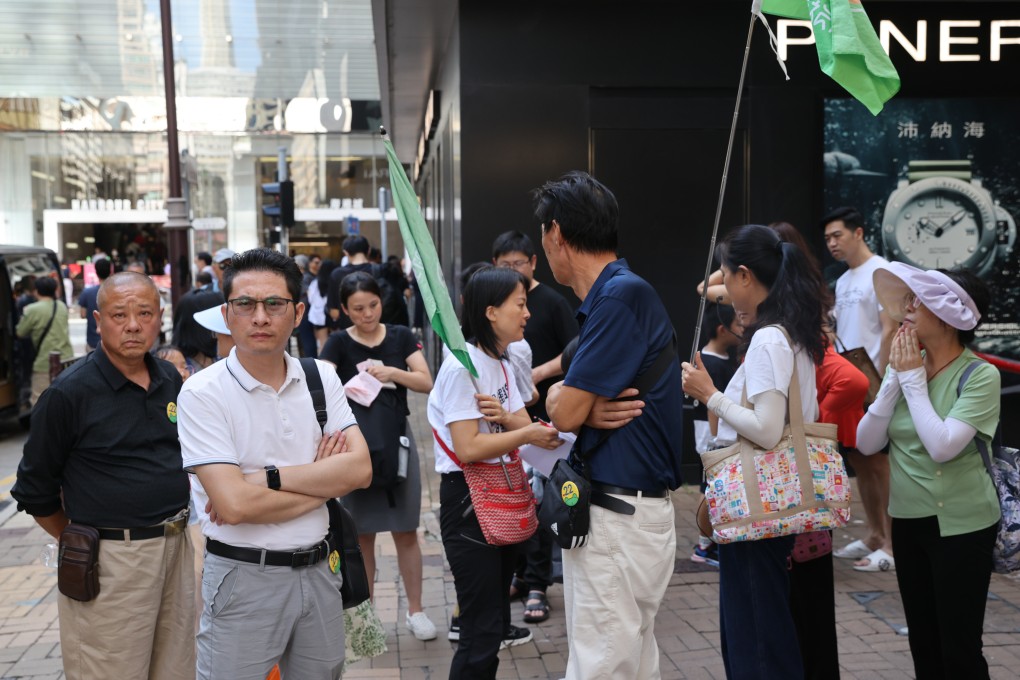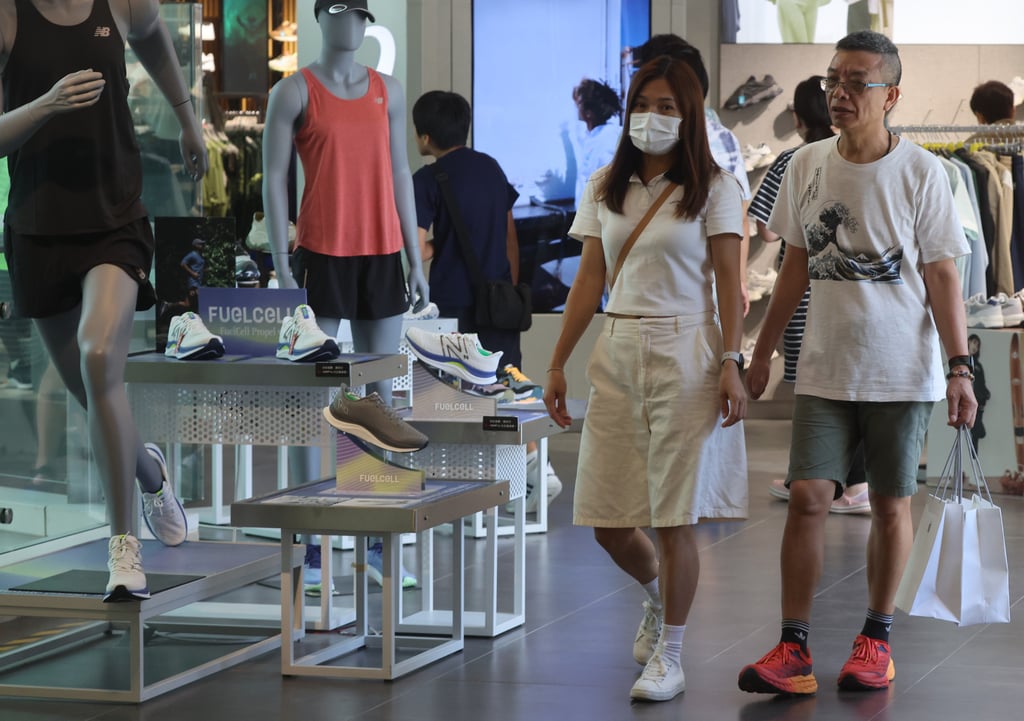Visitors flock to Hong Kong over mainland China’s ‘golden week’ holiday, but retailers say extra people did not mean higher sales
- About a million visitors hit city from September 29 to October 4, but tourists offset by 1.4 million Hongkongers who left on holiday over the period
- Real estate services firm says its survey of retailers showed footfall had increased, but sales had not reflected increased traffic

Hong Kong retailers are uneasy over business prospects for the next big holiday periods after the city had a net outflow of people over the Mid-Autumn Festival and National Day long weekend and those in the city did not spend in stores, despite higher footfall.
Immigration Department statistics showed 1 million visitors visited Hong Kong from September 29 to Wednesday in the first post-pandemic celebration of the National Day “golden week” holiday, which ends on Friday.
But the number of tourists was offset by the 1.4 million Hongkongers who left the city on holiday over the same period.
Real estate services firm JLL said it had carried out a survey of 10 retailers, whose names were withheld, but which included the jewellery, luxury, food and drink, toys, souvenirs and cosmetics sectors.
